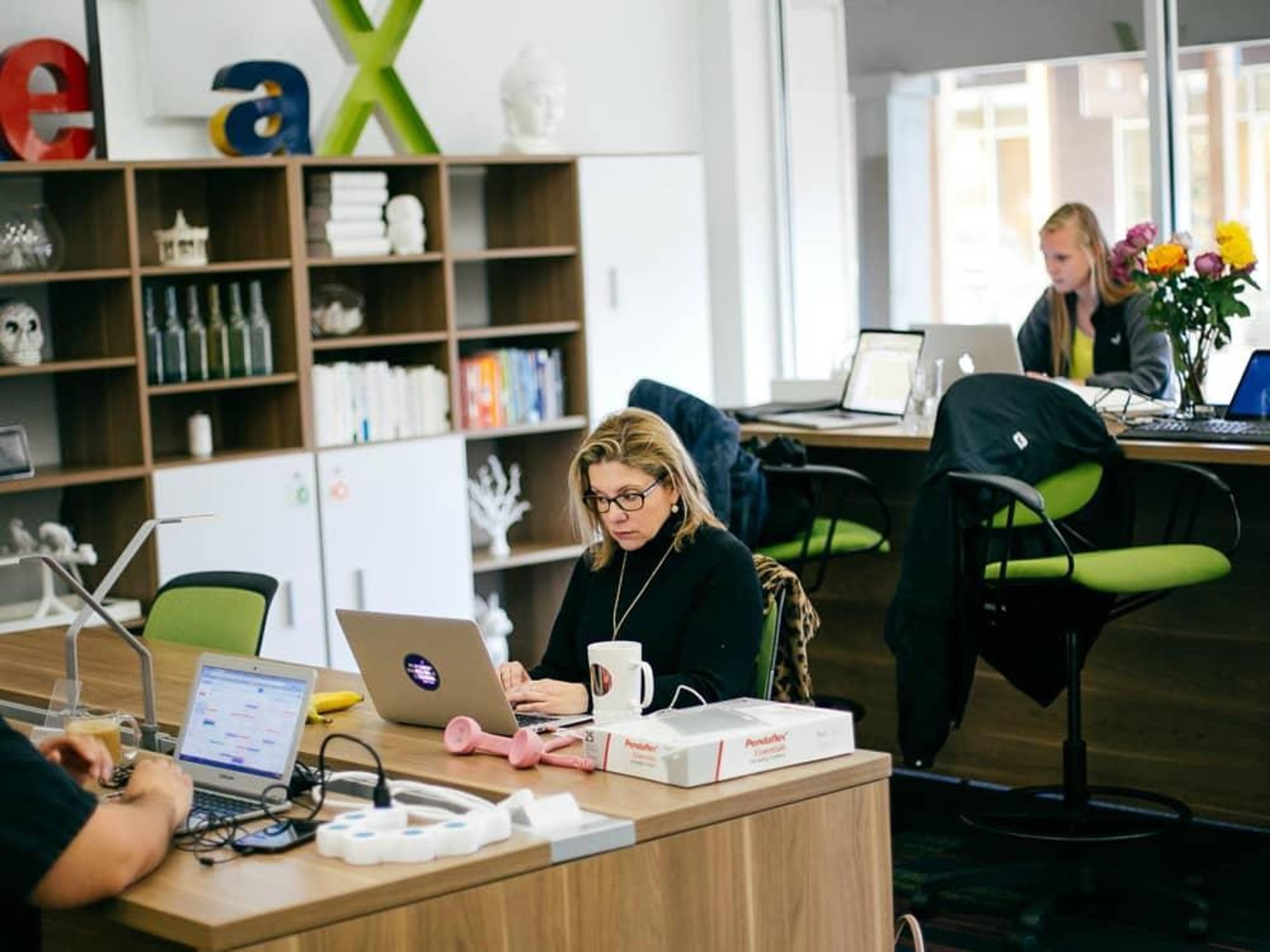Cool Coworking
New service gives you flexible access to top Austin coworking spaces

Walk into virtually any Austin coffee shop, and you’re bound to see the city’s creative professionals hunched over laptops editing photos, drafting blog posts, or scrutinizing lines of code. Our city has no shortage of coffee shops and coworking spaces, but not all creatives work well in a crowded coffee shop and not all want a coworking membership whether due to cost, traffic, travel schedule, or a host of other reasons.
Deskpass, which launched in Austin last month, aims to make it easier to try out different spaces through a single platform and a single monthly subscription. Essentially, what ClassPass does for fitness classes, Deskpass does for independent coworking spaces. Users can search and book via the website or the app and see what amenities (for instance, parking, a shared printer, and coffee provided) are available in each space.
Cofounder Sam Rosen launched Deskpass in Chicago a little over two years ago after opening a coworking space in Chicago. “Since then we’ve always been interested in helping to find and build technology that makes coworking spaces more available and more popular to more people,” Rosen says.
Deskpass is already available in New York City, Los Angeles, and Denver, and Rosen says Austin was a natural fit for the platform.
“Austin is growing really fast and has a booming job market, but there’s also terrible traffic and a wonderful cafe community in Austin, which is really great for Deskpass,” he explains. “It was ripe because of the type of people, the type of industry, and some of the problems folks have.”
As a freelance writer who generally works from home with only her dog for company, I was eager to try it out, so I paid for the part-time plan ($99 per month), which allows eight coworking visits per month. Deskpass offers two other options: the mini plan (four visits for $49 per month) and the full-time plan (20 visits for $199 per month).
Appropriately enough, I’m typing these words from the loft-like Impact Hub on North Lamar. I also tried out PrintPress in East Austin and Fibercove in South Austin. As of this writing, Deskpass has 13 locations in Austin, but members have access to coworking spaces in other cities, too (totaling over 135).
While trying out Deskpass, I appreciated not being tied to one location so that I could bounce around depending on where meetings (and my mood) took me. But you often don’t see familiar faces like you would in a coffee shop or coworking space where you’re a regular, and that’s one thing I liked about joining a coworking space before I moved to Austin.
Shelley Delayne, founder of Orange Coworking in South Austin (which is also part of Deskpass), hopes that this may improve over time.
“My hope is that either they’re using it because it’s a non-threatening way to shop around for the space that they feel suits them best and then they’ll just join and fully part of the community, or it’s people who have a circuit around town that they do where they’ll settle into a rhythm,” she says. “We might see the same Deskpass user once a week, then they become part of the community even if it’s not every day.” She’s seen Austin’s coworking community balloon from 12 spaces when she opened Orange Coworking in 2014 to over 60 now.
When I spoke to Delayne, she’d hosted one Deskpass member so far and said she felt it offered users a change of scenery to help boost creativity. She also pointed out that the platform helps coworking spaces market themselves while also compensating them for user visits.
Another way that coworking spaces are marketing themselves: Austin’s citywide coworking open house day on September 27. Several Deskpass locations are participating in the open house. So, if working from home gives you cabin fever or you’re sick of fighting for an outlet at a coffee shop, you have plenty more options.
